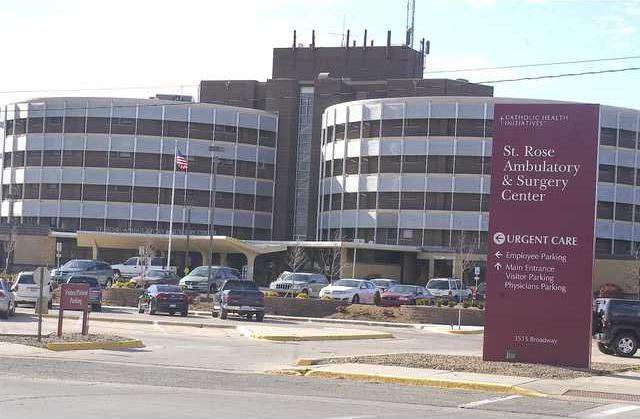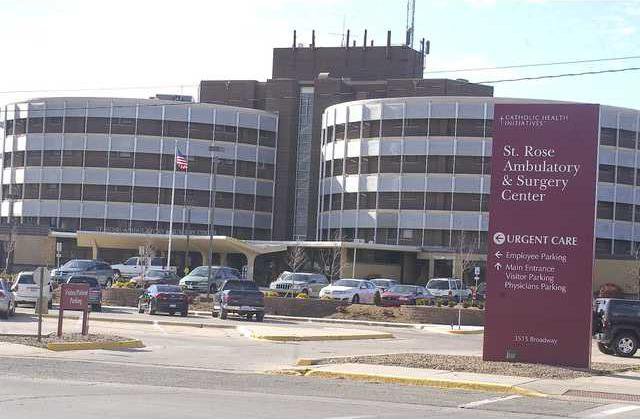Catholic Health Initiatives, Englewood, Colo., voted Wednesday to integrate St. Catherine Hospital, Garden City, and St. Rose Ambulatory and Surgery Center, Great Bend, into Denver-based Centura Health, Colorado’s largest health care network. The decision follows a unanimous recommendation from the St. Catherine, St. Rose and Centura Health boards of directors, and final approval from CHI.
The integration of the two Kansas-based facilities with Centura will unite all CHI hospitals in Colorado and Kansas into a single regional structure. According to a statement issued by the organizations, the consolidation will benefit consumers throughout the region by improving the use of telemedicine to provide access to more specialists and cut travel time for patients, promote other cost-saving health care options, and bolster partnerships with other clinics and hospitals.
The partnership may also allow for the development of assisted living facilities and fixed-income housing in Great Bend.
Through this relationship, officials said, the communities will maintain local access to health care while improving the availability of physician specialty care through the Centura Health network.
“The affiliation with Centura advances the strategic interests of both St. Catherine Hospital and St. Rose Ambulatory and Surgery Center while remaining true to the heritage and the founding principles of both Catholic Health Initiatives and the Dominican Sisters of Peace,” said Scott Taylor, president and CEO, St. Catherine Hospital and St. Rose Ambulatory and Surgery Center. “We look forward to working with Centura on our shared mission and ministry to extend the healing ministry of Christ, create new systems of care and expand Centura’s presence in Kansas.”
Although the management teams and governing boards at the two facilities will remain the same, Taylor will now answer to Centura. They will remain non-profit and church-based.
Work on the integration will begin immediately and systems at St. Catherine and St. Rose will be transitioned to Centura Health in the coming months. The basic management change will be done by Jan. 1, 2013, and in the following months, employees from the two facilities will become employees of Centura.
The entire transition will take 18 months, Taylor said. This includes the financial and information technology issues, as well as a new blue color scheme and reference to Centura in the signage.
In addition, “there will be no reduction in employment,” Taylor said. Nor, he added, will there be changes in benefits.
But, more importantly, he said patients at the facilities will see no change in service, except to see it improve with the addition of new options.
“The integration of Centura Health and St. Catherine Hospital and St. Rose Ambulatory & Surgery Center will bring together the strength and experience of hospitals and providers in Colorado and Kansas to build a more effective, more efficient health system,” said Gary Campbell, Centura president and CEO. “Together, we can create an integrated delivery network that improves health outcomes in the communities we serve, while also improving service, convenience and controlling costs, giving consumers optimal value.”
Centura Health’s statewide Colorado network includes 14 hospitals, seven senior living communities, medical clinics, affiliated partner hospitals, Flight For Life Colorado, and home care and hospice services. In 1996, Adventist Health System and CHI hospitals in Colorado formed Centura Health, a faith-based, nonprofit health care network.
However, despite Centura’s affiliation with the Adventist church, Taylor said the two Kansas hospitals will retain their “Catholic identities.” In fact, he said, all the Catholic hospitals in the organization will continue to be run by Catholic principles.
“Catholic Health Initiatives believes that aligning our facilities regionally will provide for a coordinated approach to improving the health of the communities we serve,” said Kevin Lofton, president and chief executive officer of Catholic Health Initiatives. “Centura Health has been a wonderful steward for CHI’s Colorado facilities and it has already extended its network of care into Kansas, so it’s an ideal partner for St. Catherine and St. Rose.”
CHI is a national nonprofit health system with headquarters in Englewood, Colo. The faith-based system operates in 19 states and includes 81 hospitals; 40 long-term care, assisted- and residential-living facilities; two community health-services organizations; two accredited nursing colleges; and home health agencies.
“Kansas is a rural market,” Taylor said of health care in the region. Many of the small hospitals are struggling, losing money and face additional challenges with the changes in health care.
“It is part of our mission to help them,” he said. Through networks and possible future acquisitions, Centura wants to be the catalyst for changing health care delivery for the better.
“We are excited about this,” Taylor said. “We are entering a new century of health care” and must be ready to face the challenges it presents.
“The mission and Catholic identity of St. Catherine and St. Rose has never wavered,” said Sister Peggy Martin, senior vice president, sponsorship and governance for Catholic Health Initiatives and a member of the Dominican Sisters community that founded both St. Catherine and St. Rose in 1902. “Although this integration is a change in oversight, these health care facilities will remain dedicated to serving their communities and to extending the healing ministry of Christ, ensuring the legacy of the founding Sisters for generations to come.”
St. Rose and St. Catherine to join Centura Health
Move integrates all of CHIs facilities in Colorado and Kansas into one regional structure





